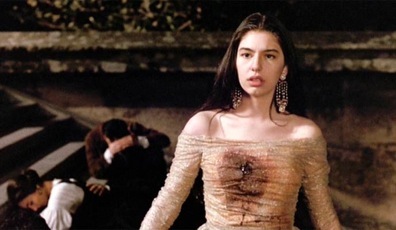The School of Thinking and Feeling
The Class of Love
The School of Thinking and Feeling
The Class of Love
2010-11

Watch and analyze 10 films crossing different time periods with the theme of love, break down connections and disconnections, common themes that relate to economic, sociological, psychological and political themes and historical significant factors that may influence themes. Based on data, using themes, create outline for movie for this decade.
Love and Death in Cinema
10-11-30
Love and Death in Cinema
Head of Class
Johanna Gunther
Resident of Love
Interns of Love
Simon
Feyzan
Linda
Egor
Theodora
Leonie
Judith
Matthias
Andrea
Erika
Michael
Corinna
Lisa-Christin
Madlen
Astrid
Severin
Ann-Kathrin
Jasmin
Janick
Sven
Pia
Jelena
Philipp
Lea
Torsten
Sonja
Sharing Love...
Love & Death in Cinema – “Vengeance in the Name of Love” - Matthius
Media resources: Once upon a time (1968), The Godfather (1972), Death Wish (1974), The Crow (1994), Braveheart (1995), Memento (2000), Gladiator (2000), Kill Bill Series (2003, 2004), The Punisher (2004), Man on Fire (2004), Taken (2008), X-Men Origins: Wolverine (2009), Inglorious Basterds (2009)
Qs to answer
Movies, especially the ones made in Hollywood are a great mirror for societal norms, some would say that Hollywood movies would even shape these norms. But at the same time violence is a prevalent theme in these films.
One aspect of movie violence, especially if inflicted by the “good boys” is the legitimization that is necessary to secure the moral supremacy over the “bad boys”.
And astonishingly often we find “good” violence legitimized by “bad” violence randomly inflicted on the loved ones of a good boy. We would face a mountain of corpses of evil helpers legitimately killed by the heroes in movie history, if we would dare to count.
So how can love be instrumentalized by movie producers as an moral excuse for mass murder?
Hypothesis:
In the concept of vengeance, any kind of negative treatment can be legitimately answered with the same or a similarly bad treatment. In the course of this reciprocal process a relation between measure and countermeasure has to be kept.
The loss (e.g. murder) of a loved person is widely seen as the worst thing a person can do to another person. Sometimes it is even seen as more severe than inflicting harm on the person itself. Therefore severe acts of vengeance can be legitimized.
Love is perceived as strongest emotion experience of the loss of a loved one is the worst experience over you are allowed to do really bad things in return.
Expected outcomes:
The loss of a loved person is widely seen as the worst event to be experienced, and therefore has a great legitimizing power, which would specifically include violence. BUT the legitimizing power is derived from the psychological concept of vengeance and is therefore limited to the rule of proportionality of infliction and punishment, and the range of the punishment is limited person or the group of persons that inflicted the initial harm/ committed the initial crime.
In the case of movies, these restrictions would give directors a hard time to find content for their action trilogy. Therefore more idealistic legitimizations are frequently